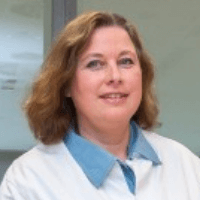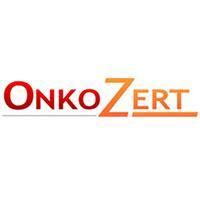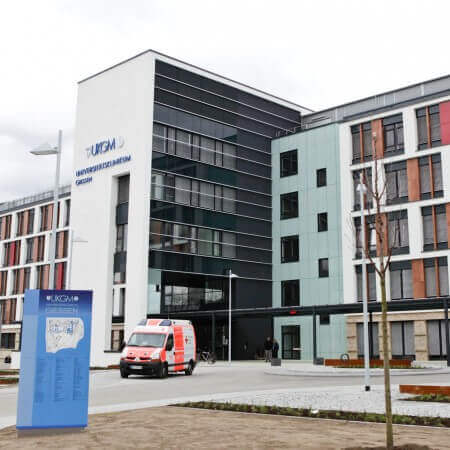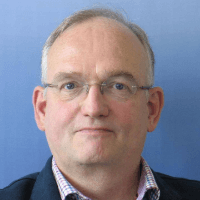Proton Beam Therapy for Glioblastoma Multiforme
Treatment prices are regulated by national law of the corresponding countries, but can also include additional hospital coefficients. In order to receive the individual cost calculation, please send us the request and medical records.

Department of Adult and Pediatric Proton Therapy
The Department of Adult and Pediatric Proton Therapy offers the full range of proton treatment and it is one of the leading and most progressive medical facilities of this kind not only in Germany, but throughout the world. The proton therapy is mostly used for the treatment of tumors of the eye, brain, spine and pelvic organs. Also, the proton therapy is an excellent treatment of tumors in children, since it has a minimal negative effect on the immature, sensitive tissues of the child’s body.







National Center for Tumor Diseases (NCT) Heidelberg
The National Center for Tumor Diseases (NCT) Heidelberg offers the full range of diagnostics and treatment of various oncological diseases. Since its foundation in 2004, the center has gained a reputation of one of the leading in Germany. The center is supported by the German Cancer Research Center (DKFZ) and the German Cancer Aid (Deutschen Krebshilfe). The center treats about 60,000 patients from 45 countries every year. Thanks to the outstanding research activities, the department has the very latest therapeutic opportunities that save lives for thousands of people.


Proton Therapy Center
The Proton Therapy Center specializes in an innovative type of radiation therapy for children, namely proton therapy. The medical facility is one of four centers in Germany offering proton therapy for cancer treatment in young patients. The center has been working since October 2015 in close cooperation with the Marburg Ion Beam Therapy Center and today can boast exceptional clinical experience in the field of its competence. Proton therapy is significantly superior to conventional radiation therapy in terms of dose control, dose distribution and side effect profile. Thus, it is an excellent alternative form of cancer treatment. The main advantage of proton therapy is that it has potentially fewer immediate and long-term side effects as compared to classical radiation therapy. The harmful effects on healthy tissues during proton therapy are minimized, which is especially important for children, as their brain and body are in the growth phase. In addition, proton therapy is provided on an outpatient basis and is an absolutely painless treatment, which is also important for young patients.

Glioblastoma multiforme (GBM) is an aggressive tumor that develops from the astrocytes (supportive cells of the brain and spinal cord). Thus, glioblastoma multiforme is a malignant astrocytoma. Due to peculiarities of astrocytes, GMS cannot be removed fully during conventional surgery and responses poorly to chemotherapy. Radiotherapy and stereotactic radiation surgery come to the fore, especially in case of recurrent tumors. Proton beam therapy for glioblastoma multiforme spares vital brain structures, like optic nerve or respiratory center, and can be applied in children whose brain is still developing.
How does the proton therapy work?
Proton beam therapy (PBT) is a radiotherapeutic technique that uses protons (high-energy particles) instead of the conventional X-rays. Such shift of the radiation source allows making irradiation more targeted and safe for the sensitive brain tissue.
Beams of X-rays (i.e. photons) affect not only cancer cells, but also healthy tissues on their way from the brain surface to the tumor. Unlike X-rays, protons release main dose of their destructive energy after moving at a particular distance. This means that their "travel" through the healthy tissues is safe and their energy is released only in the tumor. In order to estimate tumor size, volume and localization, the proton beam therapy is preceded by thorough visualizing examination.
Protons receive their cancer-killing energy in the special machine – particle accelerator or cyclotron. It speeds up protons and beams out high-energy particles. The technique requires complex medical equipment and coordinated work of specialists in clinical oncology and nuclear medicine.
How the procedure is performed?
Proton therapy for glioblastoma multiforme starts from planning appointments during which general health state is assessed, possible therapeutic schemes are discussed and visualizing studies are performed. The following steps are:
- Calculating the therapeutic plan, including number of sessions and required dose of irradiation.
- Preparing a radiotherapy mask that keeps head of a patient in the required position during the procedure.
- Positioning of a patient on the coach of proton system, performing general anaesthetic in young children.
- Lying still for 1-2 minutes. A radiotherapy team will stay out of a room, but they can see and hear a patient.
- Once the session is complete, a patient may go home. Performing proton therapy as the inpatient procedure is uncommon.
Proton therapy is not a single-session treatment. Most often irradiation is performed 5 times a week, during 5-7 weeks.
Planning proton therapy for glioblastoma abroad with Booking Health
Proton therapy can be performed only in specialized centers that are equipped with proper cyclotrons or particle accelerators and meet strict requirements of the radiation protection and radiation safety. In search of such medical facilities patients often visit Germany, Israel and other developed countries. For those of them who have not received medical services abroad before, it will be safer and more convenient to contact Booking Health.
As the international provider of services in the field of medical tourism, Booking Health offers help in such important aspects:
- Choosing the proton center based on the annual qualification profile
- Establishing communication with selected doctor, preparing the preliminary medical program
- Providing favorable treatment costs, excluding common additional fees for foreign patients (saving up to 50%)
- Booking the appointment on the desired date
- Additional monitoring of medical program by Booking Health experts
- Subsequent communication with the clinic
- Organization of additional procedures
- Control of final calculation and return of unspent funds
- Offering travel service of the highest level: booking tickets and hotels, transfer organization
- Offering interpreting services
- Support of personal medical coordinator 24/7

